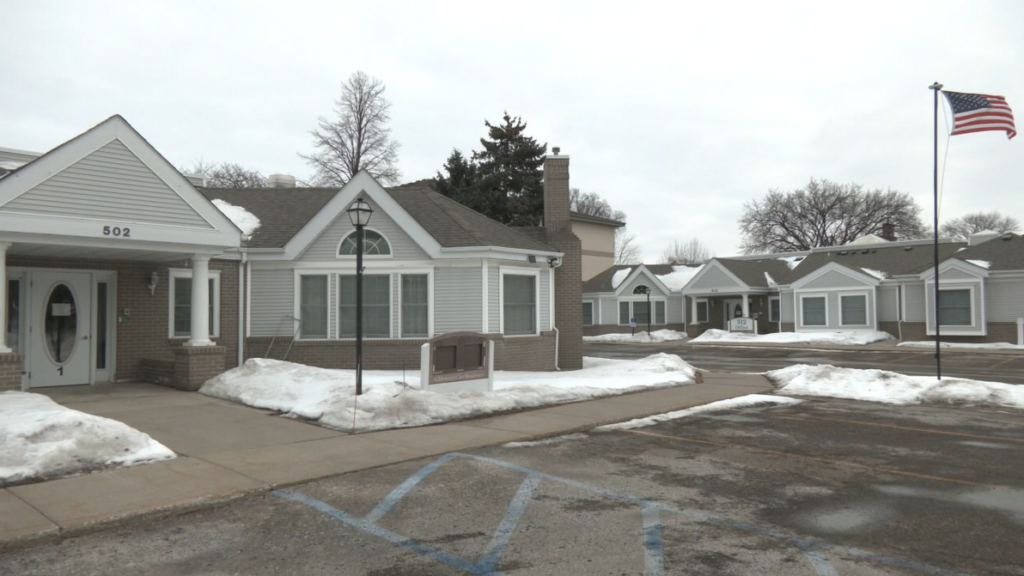New laws go into effect in Minnesota on Aug. 1
ST. PAUL, Minn. (KVRR) – There are many news laws going into effect on August 1 across Minnesota. This ranges from cannabis to background checks on firearms.
INFO FROM THE MINNESOTA HOUSE OF REPRESENTATIVES:
PUBLIC SAFETY:
The law prohibits private transfers of pistols and semiautomatic military-style assault weapons without a firearms eligibility background check of the recipient. Chief law enforcement officers must deny an application if, for example, there exists a substantial likelihood the proposed transferee is a danger to themself or the public when in possession of a firearm.
The law will require a private party wanting to receive a pistol or semiautomatic military-style assault weapon from another private party to present a valid transferee permit or permit to carry and
government-issued identification. An exception to the record of transfer process is created for unlicensed parties to transfer weapons through a firearms dealer.
A new law creates a new crime of labor trafficking that results in death with a maximum penalty of 25 years in prison and a $40,000 fine. It also creates enhanced penalties for labor trafficking a person over an extended period or when a labor trafficking victim suffers great bodily harm because of the trafficking. This crime could be punished by up to 20 years in prison and a $40,000 fine if the victim is under age 18, labor trafficking occurs over an extended period, or the victim suffers great bodily harm, and the harm was proximately caused by the labor trafficking conduct of the offender.
Some terminology is also updated to add clarity around what sort of acts rise to the level of
force or coercion. Prior law focused more on physical harm and the threat of such harm; the new law
adds more specificity to that type of harm and clarifies that psychological harm can be considered.
There is a new law criminalizes creating sex-related deep fake activity. Deep fake is audio or video of a person digitally altered so they are saying or doing something that in actuality did not happen. It is often done with a negative intent, such as spreading false information. The victim can be unaware of what happened and only finds out after their reputation has been damaged or life turned upside down. Consent to the deep fake’s creation will not be a defense for unauthorized dissemination. Immunity is established for internet service and similar providers.
BUSINESS AND COMMERCE:
It will be more difficult to sell stolen catalytic converters to scrap metal dealers, and dealers will be more accountable for accepting stolen goods. The law prohibits the possession of a detached catalytic converter with a few narrow exceptions and provides that individuals found with illegally acquired detached catalytic converters could be charged
with up to a felony.
The number of catalytic converters possessed, purchased, or acquired by a person within any six-month period may be aggregated and the person charged accordingly. Scrap metal dealers cannot purchase a catalytic converter not attached to a motor vehicle unless the catalytic converter contains identifying markings that can connect it to a vehicle.
A court will be required to include the costs of replacing a catalytic converter as a portion of any restitution ordered in a criminal case.
Adults at least age 21 can possess or publicly transport two ounces of adult use cannabis flower, and up to eight grams of cannabis concentrates. Adults can also possess up to two pounds of adult-use cannabis flower in their home. Limits on edible cannabis product possession are 800 milligrams of THC, the active ingredient in cannabis.
Penalties are established for violating possession limits, making illegal cannabis sales, selling to a minor, and exceeding personal cultivation limits.
The law will also prohibit possession of opened cannabis products in a motor vehicle, similar to the existing “open bottle” law; specify that a person operating a motor vehicle gives implied consent to be tested for impairment; and require driver education courses to include information on the effects of cannabis consumption on the ability of a person to operate a motor vehicle.
Criminal records of Minnesotans with petty misdemeanor and misdemeanor cannabis convictions will begin to be expunged. Although the records are not destroyed, they are removed from
public view and will not appear in criminal background checks. The Bureau of Criminal Apprehension will identify low-level cannabis offenders whose records are in their system, seal those records, notify law enforcement and other agencies of the grant of expungement, and direct the judicial branch to expunge records.
For felony or other cannabis convictions ineligible for automatic expungement, records will be examined on a case-by-case basis by a Cannabis Expungement Board. The board will have power to determine whether a person’s felony cannabis conviction should be vacated, charges dismissed, records expunged, or if the person should be resentenced to a lesser offense.
CIVIL LAW:
A new law allows a will to be witnessed and, where allowed, electronically notarized and completed. It uses language from the Uniform Electronic Wills Act, which is model legislation from the
Uniform Laws Commission.
EDUCATION:
Several policy changes in the education finance law, including substantial modifications to active shooter drills. For example, the law establishes requirements for active shooter drills, including that they be accessible and developmentally appropriate, and that time be provided for teachers to debrief with their students.
Schools must provide notice to parents of pending active shooter drills before they are conducted, and a student must not be required to participate. The law requires a school district or charter school conducting an active shooter drill to provide students in middle school and high school at least one hour, or one standard class period, of violence prevention training annually.
ELECTIONS:
There has been an explosive growth in the number of political advertisements both for and against candidates during election seasons. However, not all groups behind such advertisements need to
register with the state’s Campaign Finance and Public Disclosure Board, such as if they supply an ad that simply says, for example, “Call Gov. Tim Walz and tell him to support/oppose” an issue.
FAMILY:
The federal government established the Indian Child Welfare Act in 1978 to help end the practice begun in the 1800s of separating Native American children from their families. The Minnesota
version was enacted in 1985 to strengthen and expand parts of the federal law. In the event future court decisions imperil the federal law, a new law mitigates the impact in Minnesota. The law adds the federal provisions — including procedures and requirements for child protection, placement, and permanency proceedings — to state statutes.
Another provision sets forth a policy on tribal-state relations by which the state acknowledges federally recognized Indian Tribes as sovereign political entities that cannot be limited by state action.
HEALTH AND HUMAN SERVICES:
A new law will allow the supervised practice of alcohol and drug counseling by former students for 90 days from the former student’s degree conferral date or from the last date of last credit received. This practice will automatically expire after 90 days.
Amending HIV training requirements in substance use disorder treatment programs, the law will require the Department of Human Services to outline HIV minimum standards training content, instead of providing training.
Furthermore, the law will modify withdrawal management license requirements to allow supervised living facilities with a Class A license, no longer just those with Class B licenses, to operate
withdrawal management programs.
Lastly, altering substance use disorder treatment client record documentation, the law will require documentation of significant events within 24 hours of said event, not “on the day” of the event.
STATE GOVERNMENT:
Racial discrimination prohibited under the Minnesota Human Rights Act will include discrimination based on “traits associated with race, including but not limited to hair
texture and hair styles such as braids, locs, and twists.” The text of the law is based on the CROWN Act: “Creating a Respectful and Open World for Natural Hair.”






